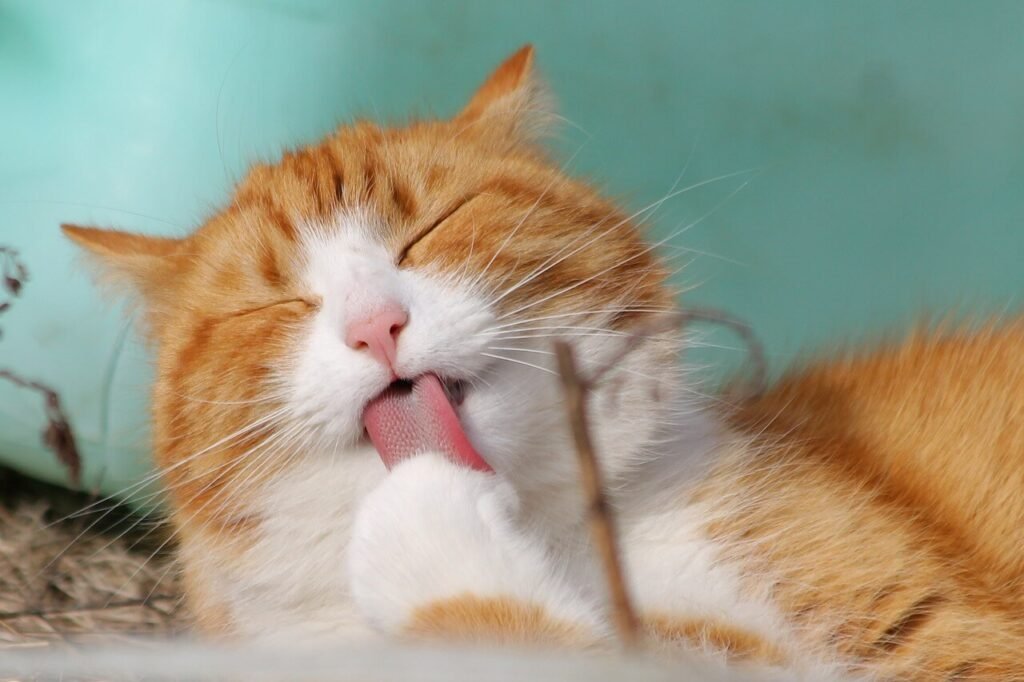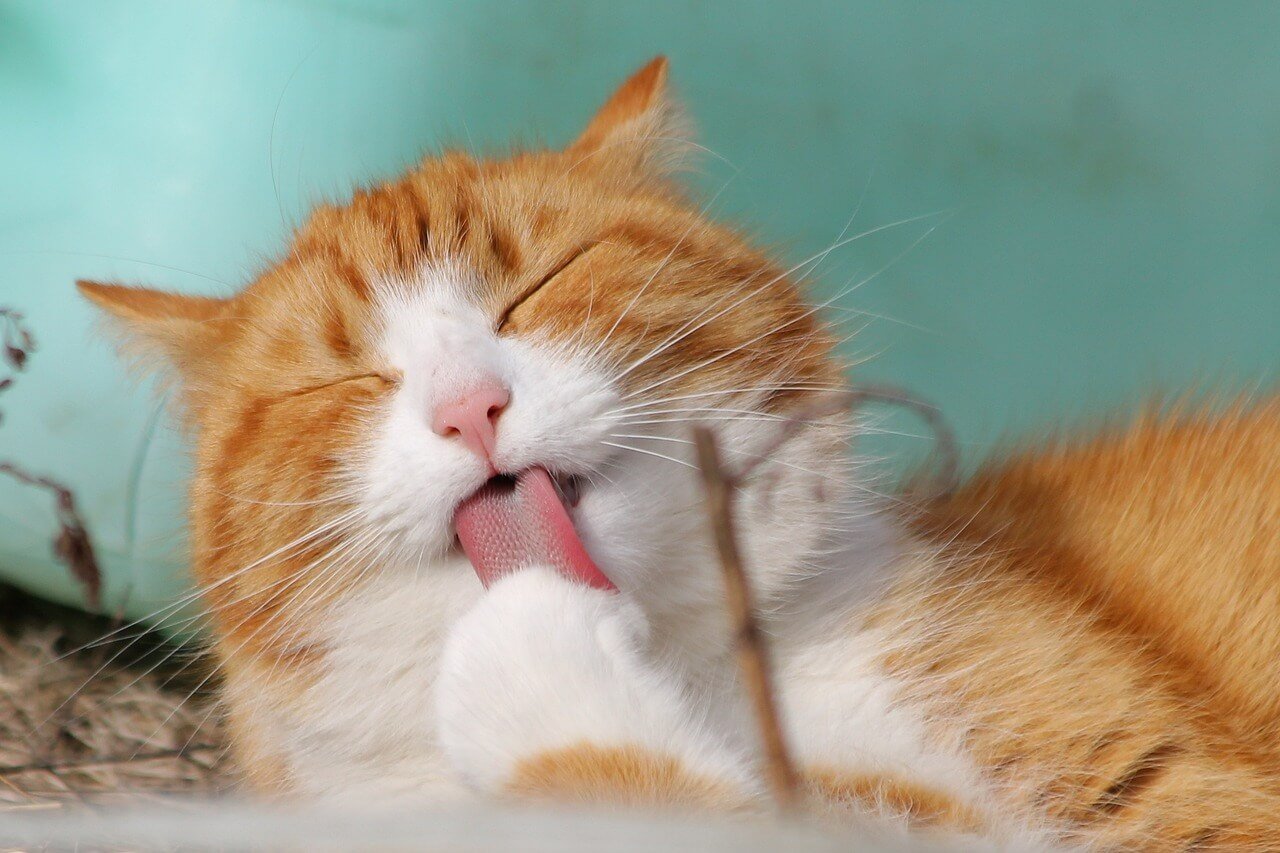Why Does My Cat Cry at Night? Decoding the Mystery
If you’ve ever been jolted awake by your cat’s late-night cries, you’re not alone. Many cat owners find themselves puzzled and sometimes frustrated by this behavior. Cats are naturally nocturnal creatures, but their nighttime vocalizations can sometimes signal more than just a desire to play or explore. Whether it’s hunger, loneliness, or an underlying health issue, understanding why your cat cries at night is the first step toward addressing the problem. In this guide, we’ll explore the reasons behind this behavior and provide practical solutions to help both you and your feline friend get a good night’s rest.
What Could Be Causing Your Cat’s Nighttime Cries?
Cats communicate through sounds, body language, and behavior. If your cat is crying at night, it’s likely trying to tell you something. Below are some of the most common reasons behind this behavior:
Hunger : Cats have unique feeding schedules, and if they’re used to being fed late at night or early in the morning, they may cry to remind you it’s mealtime.
Boredom : Cats are active creatures, especially during the night. If they don’t have enough stimulation during the day, they may become restless and vocalize their frustration.
Attention-Seeking Behavior : Some cats cry at night simply because they want attention. They may feel lonely or crave interaction when the house is quiet.
Age-Related Changes : Older cats may experience cognitive decline or discomfort, which can lead to increased vocalization at night.
Health Issues : Persistent nighttime crying could indicate pain, discomfort, or an underlying medical condition like hyperthyroidism or urinary issues.
Understanding the root cause of your cat’s cries is essential for finding the right solution. While occasional nighttime vocalizations are normal, consistent or excessive crying should not be ignored.
Practical Solutions to Help Your Cat Sleep Better
Once you’ve identified potential causes for your cat’s nighttime crying, you can take steps to address the issue. Here are some strategies that may help:
Establish a Consistent Routine : Cats thrive on routine. Feed them, play with them, and engage in activities at the same time every day to help regulate their internal clock.
Provide Mental Stimulation : Interactive toys, puzzle feeders, or treat-dispensing games can keep your cat entertained and reduce boredom during the night.
Create a Comfortable Environment : Ensure your cat has a cozy sleeping area with soft bedding and access to fresh water. A calming pheromone diffuser may also help soothe anxiety.
Ignore Attention-Seeking Behavior : If your cat is crying for attention, avoid reinforcing the behavior by responding immediately. Wait until they are quiet before offering affection or treats.
Consult a Veterinarian : If your cat’s nighttime crying persists or seems unusual, schedule a vet visit to rule out any medical conditions.
By addressing your cat’s needs and making small adjustments to their environment, you can reduce or eliminate nighttime crying and improve their overall well-being.
Check this guide 👉Why Is My Cat Crying? Best 7 Expert Tips!
Check this guide 👉Warning Signs Your Cat Is Crying for Help: Best 7 Tips!

Possible Causes of Nighttime Crying | Solutions to Try |
|---|---|
Hunger | Feed your cat a satisfying dinner and consider an automatic feeder for nighttime snacks. |
Boredom | Provide interactive toys or puzzles to keep your cat mentally stimulated. |
Loneliness | Spend quality time with your cat during the day to reduce their need for nighttime attention. |
Age-related changes | Create a calm environment and consult your vet about supplements or medications for senior cats. |
Health issues | Schedule a vet check-up to rule out pain, illness, or other medical conditions. |
Steps to Encourage Positive Sleep Habits
Training your cat to adapt to a quieter nighttime routine requires patience and consistency. Here are some behavioral adjustments you can make to encourage peaceful nights:
Gradual Schedule Shifts : Slowly adjust your cat’s feeding and playtime to earlier in the evening to align with your bedtime.
Evening Play Sessions : Engage your cat in high-energy play before bed to tire them out and reduce nighttime activity.
Limit Late-Night Snacks : Avoid feeding your cat right before bed, as this can reinforce nighttime waking and crying.
Use Positive Reinforcement : Reward your cat with treats or praise when they remain quiet during the night to encourage good behavior.
Block Access to Distractions : Close doors or use baby gates to prevent your cat from accessing areas that might stimulate nighttime activity.
With consistent effort, these adjustments can help your cat develop healthier sleep habits and give you a more restful night.
Signs It’s Time to Consult a Veterinarian
While occasional nighttime crying is normal, certain signs may indicate that your cat needs professional attention. Keep an eye out for the following symptoms:
Persistent Crying : If your cat cries every night without relief, it could signal an underlying issue that needs investigation.
Changes in Appetite : A sudden loss of interest in food or excessive hunger may point to a medical condition.
Lethargy or Weakness : If your cat seems unusually tired or uninterested in activities, it may be a sign of illness.
Increased Vocalization : A dramatic increase in crying or meowing, especially in older cats, could indicate cognitive dysfunction or pain.
Behavioral Changes : Any significant shift in your cat’s personality or habits warrants a vet visit.
Early intervention can make a big difference in your cat’s health and happiness. Don’t hesitate to seek professional advice if you notice any of these warning signs.
How Your Home Environment Affects Your Cat’s Behavior
Your cat’s surroundings play a significant role in their nighttime behavior. Changes in the environment, even subtle ones, can lead to increased vocalization. Here are some environmental factors that might trigger your cat’s nighttime crying:
Loud Noises : Sudden or persistent sounds, such as traffic, alarms, or household appliances, can startle your cat and cause them to cry out.
New Additions to the Home : Introducing new pets, furniture, or even people can make your cat feel uneasy and more vocal at night.
Temperature Changes : Cats are sensitive to extreme temperatures. A room that’s too hot or cold may disrupt their sleep and lead to crying.
Lack of Hiding Spaces : Cats feel safer when they have cozy spots to retreat to. A lack of hiding spaces can make them feel exposed and anxious.
Changes in Lighting : Bright lights or sudden darkness can confuse your cat and disrupt their natural sleep-wake cycle.
By addressing these environmental factors and making your home more cat-friendly, you can help reduce nighttime crying and create a calmer atmosphere for your feline friend.
Understanding the Emotional Side of Your Cat’s Cries
Cats are emotional creatures, and their cries can often be linked to feelings of stress, anxiety, or loneliness. Here are some emotional triggers that might explain why your cat is crying at night:
Separation Anxiety : If your cat is particularly attached to you, they may cry at night when they feel separated or isolated.
Grief : The loss of a companion animal or a major change in routine can leave your cat feeling sad and vocalizing their distress.
Fear : Unfamiliar smells, sights, or sounds can make your cat feel scared and prompt them to cry for reassurance.
Boredom-Induced Frustration : Cats that don’t receive enough mental or physical stimulation during the day may express their frustration through nighttime crying.
Overstimulation : Too much activity or interaction before bedtime can overstimulate your cat, making it harder for them to settle down.
Recognizing these emotional triggers can help you provide the comfort and support your cat needs to feel secure and calm during the night.
Why Older Cats May Cry More at Night
As cats age, their needs and behaviors change, and nighttime crying can become more frequent. Senior cats require extra attention and care to ensure their comfort. Here are some reasons why older cats may cry at night:
Cognitive Decline : Aging cats may experience confusion or disorientation, leading to increased vocalization, especially at night.
Joint Pain or Arthritis : Physical discomfort from arthritis or other age-related conditions can make it difficult for senior cats to find a comfortable sleeping position.
Decreased Mobility : Older cats may struggle to access food, water, or litter boxes, prompting them to cry for assistance.
Increased Sensitivity to Sounds : Senior cats often become more sensitive to noises, which can disturb their sleep and cause them to cry out.
Vision or Hearing Loss : Impaired senses can make older cats feel vulnerable, leading to heightened anxiety and nighttime vocalizations.
By understanding the unique challenges faced by senior cats, you can take steps to accommodate their needs and provide a soothing environment that minimizes nighttime crying.
Frequently Asked Questions About Nighttime Crying in Cats
Why does my cat cry at night but not during the day?
Cats are naturally more active at night due to their nocturnal instincts. However, factors like hunger, boredom, or health issues can intensify nighttime vocalizations.
Is it normal for kittens to cry at night?
Yes, kittens often cry at night because they miss their mother or littermates. Providing comfort and companionship can help ease their distress.
Can I train my cat to stop crying at night?
Yes, with patience and consistency, you can train your cat to adjust their behavior by establishing routines and using positive reinforcement.
Should I let my cat sleep in my bed to stop nighttime crying?
Allowing your cat to sleep in your bed may provide comfort, but it’s important to set boundaries to avoid reinforcing attention-seeking behavior.
What should I do if my cat’s nighttime crying suddenly increases?
Sudden changes in behavior should always be evaluated by a veterinarian to rule out medical problems or discomfort.
Finding Harmony: Helping Your Cat Sleep Through the Night
Understanding why your cat cries at night is the first step toward creating a peaceful household for both you and your feline companion. By identifying the root cause—whether it’s hunger, boredom, or an underlying health issue—you can implement targeted solutions to address the problem. Remember, patience and consistency are key when working to modify your cat’s behavior. With the right approach, you can ensure that both you and your cat enjoy restful nights and wake up refreshed. After all, a happy cat makes for a happy home.
How Cats Develop Lymphoma: Best 7 Expert Tips! – Learn about causes, symptoms, and prevention to protect your cat from this common cancer.
How Dogs Develop Lymphoma: Best 7 Expert Tips! – Learn causes, symptoms, and prevention strategies to protect your dog from this common cancer.
Diphenhydramine Safe for Dogs? Best 7 Expert Tips! – Learn proper dosing, uses, and precautions to keep your dog safe while using Benadryl.
Is Milk in Cat Food Safe? Best 7 Expert Tips! – Discover the truth about milk in cat food, its risks, and how to keep your feline healthy and happy.





